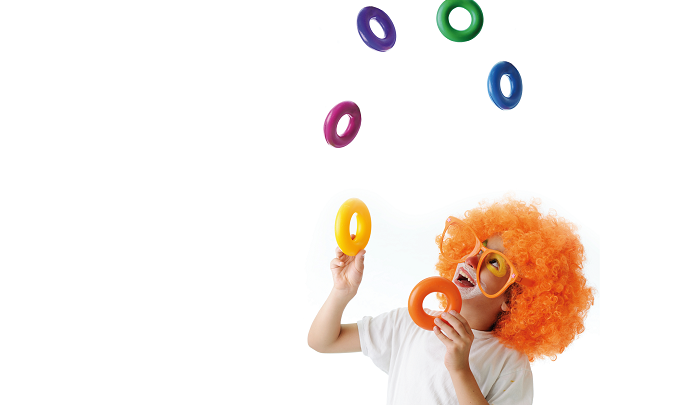If Weekly Metacognition Lessons Can Progress Maths Skills By Four Months, What Else Could They Do?

Learning how to learn helps children learn better – who'd have thought?

‘Let’s juggle!’ announces the Y6 teacher as multi-coloured balls begin to fly around the classroom. The sounds of focused concentration – ‘One, two, three’ – mingle with groans of ‘I can’t do it’.
An onlooker might be forgiven for thinking that Rosendale Primary School in southwest London is teaching its children circus skills. But this is not an attempt by the school to train its pupils to become clowns. It is one of a series of lessons taught on the theme of metacognition, or learning how to learn. The outstanding three-form community school in Lambeth has developed an approach to learning known as ReflectED. This method encourages children to reflect on their learning and devise strategies to improve their progress. Metacognition is defined simply by one of the pupils as ‘learning about learning and thinking about thinking.’ Research from the Sutton Trust suggests that metacognition can be particularly effective for less able children and Rosendale hopes that it will help close the gap between more and less able learners. The ReflectED programme aims to improve attainment, especially among disadvantaged pupils, and to help learners of all backgrounds develop the tools to fulfil their potential. Headteacher Kate Atkins explains, “It’s a way to develop children’s thinking about learning in the classroom. We can see that successful learners have a good understanding of what they do and do not know and don’t overestimate their abilities. They are persistent and able to change strategies if something goes wrong or they are not making progress. These children are able to describe how they learn. Struggling students, on the other hand, tend to overestimate their abilities. They find it difficult to see how the same approach can be used in comparable situations and tend to give up when things go wrong, rather than try a different strategy. They don’t plan or develop new ways to complete a task and do not monitor their progress.’ Conveying the idea that learning is fun is also important. ‘We try to develop enjoyment and get children to feel a sense of success in their learning’, says Kate. Pupils in the school have a weekly 30-minute ReflectED lesson that uses resources from the ReflectED website, including films and downloads. In ReflectED lessons children are first taught the words they will need to describe their thoughts – the ‘language of reflection’. One such lesson focuses on how the promise of a reward impacts on learning. Pupils are challenged to pick up as many kidney beans as possible with chopsticks using only one hand. They repeat the exercise having been told that if they can pick up five more kidney beans they will be given five minutes extra playtime. They are then asked to think about how the reward affected their completion of the task. During the week that follows the ReflectED lesson, pupils are encouraged to reflect on their learning and record their thoughts. A supplied sheet encourages them to undertake ‘reflection steps’ by answering questions such as ‘What did you already know? What was the new learning? Did you succeed? If so, what helped you to learn? If you failed, do you know why? What are your next steps to improve your learning? Did you learn any new skills that you would use again?’ Using a note taking application called Evernote, pupils record their reflections on iPads via typing, voice recordings or photographs. They include performance tags such as ‘Sky high: I am confident enough to coach’ or ‘Struggling: I might need to spend some more time looking at this’. The tags enable them to search back through their records, as well as their peers’ notes, to see how they have improved. Teachers can also look back through these reflections to understand what pupils are enjoying or struggling with, and to identify specific pupil needs.
Staff involved in the project are enthusiastic about how it gives children responsibility for their learning. Y6 teacher Justine Paton says, ‘The best thing I’ve found is that at the end of the year, my children were a lot more able to establish where they were with their learning. When it came to revision, they were really good at identifying areas that they needed to work on. It’s really satisfying to see students being aware of what they need to do and how they need to progress. Where the project has been most successful, I think, is giving pupils a sense of ownership of their own learning.’
An advantage of the approach is the ease with which teachers can incorporate the strategies into their existing practice. Stephen Bawa, specialist music teacher at the school, says, ‘A lot of the ideas behind ReflectED are things that you’re doing as a class teacher anyway.
They’re the kinds of questions that you’re using on a regular basis. If there was a lightbulb moment it was, ‘Well, this isn’t any different to what I’m doing anyway.’ It’s just an additional way to capture those conversations that you have and to use them in a productive way. It isn’t just a way of gathering evidence so that you can assess a child. It’s also helping pupils to think for themselves and take charge of their learning.’
A recent evaluation commissioned by the Education Endowment Foundation has outlined the effects of ReflectED on a much larger group of pupils. The study was carried out by researchers at the University of Manchester’s Institute of Education, led by Dr Gary Motteram. It looked at the impact of the programme when it was trialled with 1,850 Y5 pupils in 30 primary schools. The benefits were most notable in maths, where pupils made four months additional progress.
The programme has now been adopted by other schools in North Yorkshire and Jersey. Lesson plans, resources, videos and staff training materials can be found on Rosendale Primary’s website at reflectedlearning.org.uk.
Teach metacognition through juggling
1 Ask children how they feel before they have a go at juggling. Hand out the juggling balls and take cover!
2 Get the students to rate their first attempt between 1 and 5 and think about how successful they were. They discuss in pairs about how they could improve. Talk about these strategies, such as ‘use an expert’ or ‘written instructions’, as a whole class and write them on the board.
3 Watch a video of an expert juggling, then give pupils a second go at juggling, encouraging them to apply the expert’s tips. Their partner coaches them by giving them advice and feedback.
4 Ask children to evaluate their performance this time and discuss how they did things differently. In pairs they can use mini whiteboards to list words describing how they felt.
5 Children write up their reflection records on Evernote, rating their success and the strategies they would use in the future to improve further.
Dr Amanda Barton is a freelance writer, educational consultant and teacher trainer. She is co-author of Teaching Primary French and Teaching Primary Spanish (Bloomsbury, 2016).












